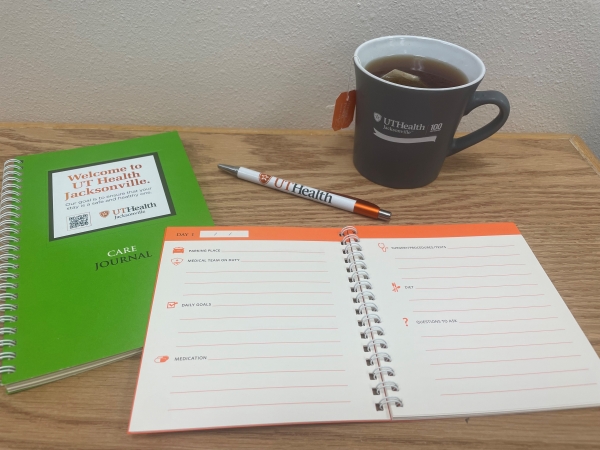
Jacksonville, Texas (June 27, 2024) — UT Health Jacksonville has collaborated with the Josie King Foundation to provide care journals to patients to further enhance patient safety. UT Health Jacksonville is also the first hospital to include a QR Code on the journal for patients and loved ones to easily access their providers, specialties and other information right on their cell phone.
Hospital leadership learned about the care journals from Sorrel King, who spoke at a UT Health East Texas leadership conference last year, highlighting the importance of creating a culture of patient safety by recalling her 18-month-old daughter Josie’s tragic 2001 death from a medical error at a Maryland hospital.
“The care journal is a tool to promote an integrative exchange among providers, patients and families, ensuring that patients have the safest and best experience at UT Health Jacksonville,” said UT Health Jacksonville CEO DeLeigh Haley, RN. “Having a history in patient care as a nurse, I know firsthand how important it is to feel involved in one’s own care. Having a hands-on tool for our patients made sense to keep them engaged in their healing journey with us.”
Patient journals are placed in each patient’s room, and there are two different journals depending on the length of stay. The journals have sections that include important names and numbers, current medication list, parking place, names of medical team, daily goals, medication, surgery/procedures/test, diet, questions to ask, thoughts, discharge and follow-up care, thank you notes to write or recognition, and follow-up appointments.
The journals are designed for the patient and/or family to document their medical journey. There are pages for each day of hospitalization, and on the cover a QR Code so they can access the hospital’s website, find their providers, services offered and be more engaged in their care.
Caregivers also can help fill in information if needed. For example, documenting follow-up appointments.
